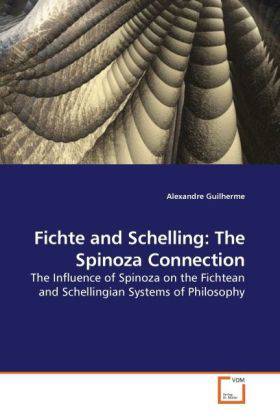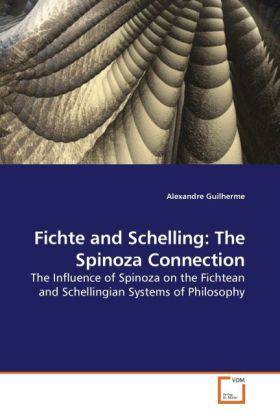
Je cadeautjes zeker op tijd in huis hebben voor de feestdagen? Kom langs in onze winkels en vind het perfecte geschenk!
- Afhalen na 1 uur in een winkel met voorraad
- Gratis thuislevering in België vanaf € 30
- Ruim aanbod met 7 miljoen producten
Je cadeautjes zeker op tijd in huis hebben voor de feestdagen? Kom langs in onze winkels en vind het perfecte geschenk!
- Afhalen na 1 uur in een winkel met voorraad
- Gratis thuislevering in België vanaf € 30
- Ruim aanbod met 7 miljoen producten
Zoeken
€ 115,95
+ 231 punten
Omschrijving
The influence of Spinoza on Post-Kantian Idealism has been widely acknowledged. The influence of Spinozism on Hegel has already been studied in some detail and Hegel himself wrote extensively on elements of Spinoza's views. However, detailed research and study concerning the influence of Spinoza on Fichte and Schelling, the other two great Post-Kantian Idealists, is still to be carried out in the Anglo-American tradition. Commentators in this tradition acknowledge the influence of some of Spinoza's views on Fichte and Schelling's respective projects but fail to provide a detailed account. This work attempts to help fill the gap in this area by providing a detailed study of the influence of Spinozism on these two seminal philosophers and demonstrate that Fichte and Schelling's philosophy should not be read solely in the light of Kantianism but also of Spinozism. This allows us to uncover some hidden facets embedded in their systems and gain a better understanding of their philosophy. Fichte and Schelling are the bridge between Kant and Hegel and therefore the exploration of further influences in their work is of great value.
Specificaties
Betrokkenen
- Auteur(s):
- Uitgeverij:
Inhoud
- Aantal bladzijden:
- 216
- Taal:
- Engels
Eigenschappen
- Productcode (EAN):
- 9783639219951
- Verschijningsdatum:
- 15/12/2009
- Uitvoering:
- Paperback
- Formaat:
- Trade paperback (VS)
- Afmetingen:
- 152 mm x 229 mm
- Gewicht:
- 322 g

Alleen bij Standaard Boekhandel
+ 231 punten op je klantenkaart van Standaard Boekhandel
Beoordelingen
We publiceren alleen reviews die voldoen aan de voorwaarden voor reviews. Bekijk onze voorwaarden voor reviews.









